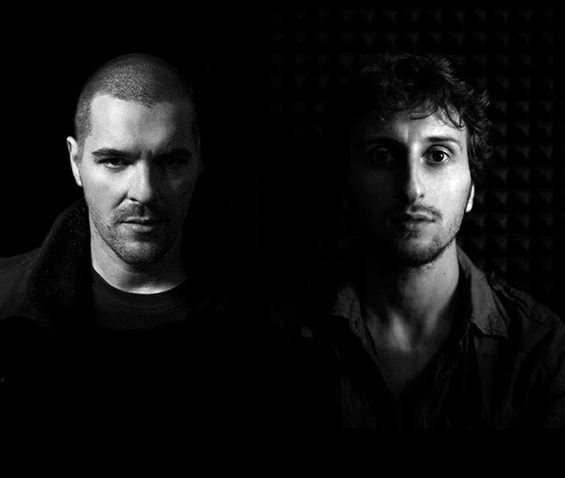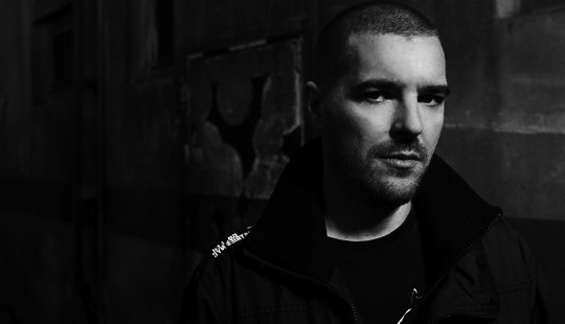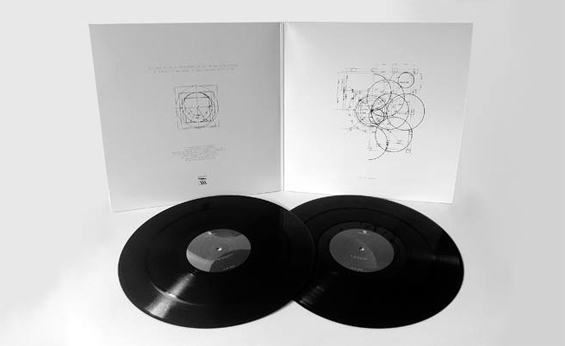

FIVE QUESTIONS WITH ZEITGEBER
Stroboscopic Artefacts has solidly established itself as one of the most forward-thinking experimental techno labels in existence. So it came as a bit of a surprise when word got out that Lucy (Luca Mortellaro) would be collaborating with veteran producer Speedy J (Jochem Paap) on a self-titled full-length under the Zeitgeber moniker (“synchronizer” in English). In fact, the release (the first one from Stroboscopic Artefacts issued in a double twelve-inch vinyl format rather than CD) turns out to be as bold as anything else in the label's catalogue, as the two artists went into it intent on liberating themselves from dancefloor considerations and embracing the opportunity to focus on abstract sound design (see the textura review here). We thank Mortellaro and Papp for answering a few questions on the occasion of the album's release.
1. How did working with each other on the Zeitgeber project affect the way you make music, and what is the thing you learned most from working with the other?
Lucy: We'd been pretty much sharing the same mindscape and mood, both making music without any ‘expectations' or ‘application,' so, quite sincerely, it was as if there was one entity working on the album project. I'm not able to mentally separate myself from him while thinking about our studio sessions, which is why I'm not really able to answer your question properly.
Speedy J: I agree with Luca. Working together was pretty effortless. We didn't have any awkward moments of silence; it was all back-to-back ideas and developments all the time we were in the studio. It was quite easy to find common ground.
2. Was there an album or track that made you want to become an electronic artist?
Lucy: Not only one for sure, probably the early Warp Records stuff, for their uniqueness and their out-of-the-box attitude. You need a lot of self-confidence to do it so deeply as they did back then.
Speedy J: It was boredom and an interest in playing with faders and knobs that made me want to explore music, and not an artist or album. I never planned to “become an electronic artist,” whatever that is. At the time that I started buying gear this wasn't a profession with a future.

3. Was there an album or track that had the greatest impact or influence upon you?
Lucy: Again, of course, I can't choose one, but I can tell you the first one that comes to my mind in response to your question: Tricky's debut album Maxinquaye . I was twelve when my brother (five years older then me) brought it home. Big shock, and I've never stopped listening to it since then.
Speedy J: There is a different one every week. I really can't give you one track or album that says it all. I don't understand how people can have one all time favourite. My interest shifts all the time. I find stuff that blows my mind very regularly, but the stuff that I listen to doesn't necessarily influence my music making. Generally non-musical things inspire me more.
4. What album do you love that nobody would expect you to love?
Lucy: People know me for very abstract music, so my answer is Wu-Tang Clan's Enter The Wu-Tang , 1993. The reason? Probably their hyper-raw and wild way of treating the sound and building arrangments and songs structure... so spontaneous and so strong.
Speedy J: I have no idea what people expect.

5. What is your favourite track on the Zeitgeber album, and what is about it that makes it your favourite?
Lucy: As I see the album as continuous flow, I can't pick a favourite. But I can say that the most intense one during the studio sessions with Jochem was probably for me “These Rhythms.”
Speedy J: I'm a fan of happy accidents, and I remember in track two there were some moments when the machines got ahead of us and we were really enjoying the ride!

July 2013![]()